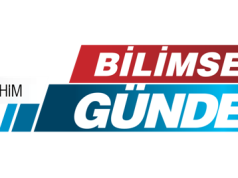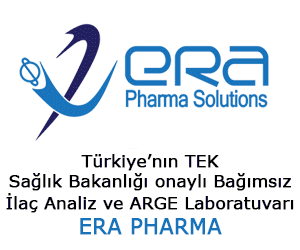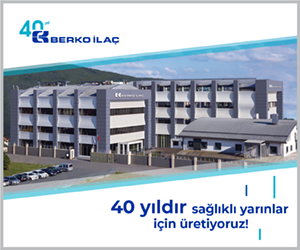Coronavirus Vaccine Tracker

Dünyadaki araştırmacılar koronavirüse karşı 135’ten fazla aşı geliştiriyorlar . Aşılar genellikle kliniğe ulaşmadan önce yıllarca araştırma ve test gerektirir, ancak bilim adamları gelecek yıla kadar güvenli ve etkili bir aşı üretmek için yarışmaktadır .
Çalışma Ocak ayında SARS-CoV-2 genomunun deşifresiyle başladı . İnsanlarda ilk aşı güvenliği denemeleri Mart ayında başladı, ancak önümüzdeki yol belirsizliğini koruyor. Bazı denemeler başarısız olabilir ve diğerleri net bir sonuç vermeden sona erebilir. Ancak birkaçı, virüse karşı etkili antikorlar üretmek için bağışıklık sistemini uyarmayı başarabilir.
İşte, insanlarda denemelere ulaşmış olan tüm aşıların durumu ve hala hücrelerde veya hayvanlarda test edilmekte olan umut verici aşıların bir seçimi.
Aşı Test Süreci
Laboratuardan kliniğe bir aşının gelişim döngüsü.
![]()
PRECLINICAL TEST : Bilim adamları , bağışıklık yanıtı üretip üretmediğini görmek için aşılar fare veya maymun gibi hayvanlara verilir .
FAZ I GÜVENLİK ARAŞTIRMALARI : Bilim insanları , güvenliği ve dozu test etmek ve bağışıklık sistemini uyardığını doğrulamak için aşıyı az sayıda insana verir.
AŞAMA II GENİŞLETİLMİŞ DENEME : Bilim adamları , aşının içlerinde farklı davranıp davranmadığını görmek için aşıyı çocuklar ve yaşlılar gibi gruplara ayrılmış yüzlerce insana verir . Bu denemeler, aşının bağışıklık sistemini uyarma güvenliğini ve yeteneğini daha da test eder.
FAZ III ETKİNLİK DENEMELERİ : Bilim adamları, aşıyı binlerce kişiye verir ve plasebo alan gönüllülerle karşılaştırıldığında, kaç kişinin enfekte olduğunu görmek için bekler. Bu denemeler, aşının koronavirüse karşı koruma sağlayıp sağlamadığını belirleyebilir.
ONAY : Her ülkedeki düzenleyiciler deneme sonuçlarını gözden geçirir ve aşının onaylanıp onaylanmayacağına karar verir. Bir pandemi sırasında, bir aşı resmi onay almadan önce acil kullanım izni alabilir.
ÇÖZME HIZI : ABD hükümetinin Warp Speed Operasyonu programı, aşıların işe yaradığına dair kanıt bulunmadan milyarlarca dolarlık federal fon ve destek almak için beş aşı projesi seçti .
KOMBİNE AŞAMALAR : Aşı gelişimini hızlandırmanın başka bir yolu da evreleri birleştirmektir. Bazı koronavirüs aşıları şimdi örneğin ilk kez yüzlerce insan üzerinde test edildikleri Faz I / II çalışmalarındadır.
Genetic Vaccines
Vaccines that use one or more of the coronavirus’s own genes to provoke an immune response.
![]()
DNA
RNA
PHASE II WARP SPEED
![]()
Moderna’s mRNA vaccine dazzled the stock market in May with Phase I data on just eight people, only to see its stock price drop when experts had a lukewarm reaction to the results. Part of Operation Warp Speed, the American company is eyeing Phase III trials in July and hopes to have vaccines ready by early 2021.
PHASE I PHASE II WARP SPEED
![]()
![]()
![]()
The German company BioNTech has entered into collaborations with Pfizer, based in New York, and the Chinese drug maker Fosun Pharma to develop their mRNA vaccine. In May, Pfizer announced human trials for the vaccine. Another beneficiary of Operation Warp Speed, Pfizer hopes to have a few million doses for emergency use in the fall if all goes well in the trials.
PHASE I
![]()
In May, the American company Inovio published a study showing that their DNA-based vaccine produced antibodies in mice. Safety trials in humans are now underway in the United States and will start in South Korea at the end of June.
PRECLINICAL
![]()
![]()
Imperial College London researchers have developed a “self-amplifying” RNA vaccine, which boosts production of a viral protein to stimulate the immune system. They plan to start Phase I/II trials on June 15, and have partnered with Morningside Ventures to manufacture and distribute the vaccine through a new company called VacEquity Global Health.
PRECLINICAL
![]()
In March, the Trump administration tried to entice Curevac to move its research from Germany to the United States. The company has not yet started human trials for Covid-19, but a rabies vaccine based on the same RNA design passed Phase I safety trials in January. The company said its German facility can make hundreds of millions of vaccines a year.
Viral Vector Vaccines
Vaccines that use a virus to deliver coronavirus genes into cells and provoke an immune response.
PHASE II PHASE III WARP SPEED
![]()
![]()
A vaccine in development by the British-Swedish company AstraZeneca and the University of Oxford is based on a chimpanzee adenovirus called ChAdOx1. The vaccine has gone through Phase I testing and is beginning Phase II/III testing in England and Brazil. Supported by Operation Warp Speed, the project may deliver emergency vaccines by October.
PHASE II
![]()
![]()
The Chinese company CanSino Biologics is testing a vaccine based on an adenovirus called Ad5, in partnership with the Institute of Biology at the country’s Academy of Military Medical Sciences. In May they published a paper in the Lancet, the first time Phase I trial data from any Covid-19 vaccine appeared in a scientific journal.
PRECLINICAL WARP SPEED
![]()
![]()
Researchers at Beth Israel Deaconess Medical Center in Boston are testing an adenovirus called Ad26 in monkeys. Johnson & Johnson, picked by Operation Warp Speed, announced in June that they would start Phase I/II trials in late July.
PRECLINICAL
![]()
![]()
The Swiss company Novartis will manufacture a vaccine based on a gene therapy treatment developed by the Massachusetts Eye and Ear Hospital. A virus called an adeno-associated virus delivers coronavirus gene fragments into cells. Phase I trials are set to begin in late 2020.
PRECLINICAL WARP SPEED
![]()
![]()
The American company Merck announced in May it would develop a vaccine from vesicular stomatitis viruses, the same approach it successfully used to produce the only approved vaccine for Ebola. The company is partnering with IAVI.
Protein-Based Vaccines
Vaccines that use a coronavirus protein or a protein fragment to provoke an immune response.
![]()
PHASE I PHASE II
![]()
In May, the Maryland-based Novavax started a Phase I/II trial on a vaccine made up of microscopic particles carrying fragments of coronavirus proteins. The Coalition for Epidemic Preparedness Innovations is investing $384 million in the project.
PHASE I
![]()
![]()
Clover Biopharmaceuticals has developed a vaccine containing a protein from coronaviruses. The vaccine would be taken in conjunction with a so-called adjuvant, made by British drugmaker GSK, to further stimulate the immune system.
PRECLINICAL
![]()
![]()
After the SARS epidemic in 2002, Baylor College of Medicine researchers began developing a vaccine that could prevent a new outbreak. Despite promising early results, support for the research disappeared. Because the coronaviruses that cause SARS and Covid-19 are very similar, the researchers are reviving the project in partnership with the Texas Children’s Hospital.
PRECLINICAL
![]()
A vaccine in development by the University of Pittsburgh, called PittCoVacc, is a skin patch tipped with 400 tiny needles made of sugar. When placed on the skin, the needles dissolve and deliver virus proteins into the body.
PRECLINICAL
![]()
![]()
![]()
A vaccine from Australia’s University of Queensland delivers viral proteins altered to draw a stronger immune response. In June, the university and the company CSL announced a partnership to start Phase I trials, which could lead to millions of doses a year starting in 2021. GSK is providing an adjuvant to further stimulate the immune system.
PRECLINICAL
![]()
![]()
The French company Sanofi will produce viral proteins using engineered viruses that grow inside insect cells. GSK will supplement these proteins with adjuvants that stimulate the immune system. Sanofi has said it could produce at least 600 million doses a year if the vaccine succeeds in trials.
PRECLINICAL
![]()
Vaxart’s vaccine is an oral tablet containing different virus proteins. In June, the American company announced it was preparing for Phase I trials in summer 2020.
Whole-Virus Vaccines
Vaccines that use a weakened or inactivated version of the coronavirus to provoke an immune response.
![]()
Inactivated
virus
PHASE I PHASE II
![]()
The private Chinese company Sinovac Biotech is testing an inactivated vaccine called CoronaVac in Phase II trials and is building a facility to manufacture up to 100 million doses annually.
PHASE I PHASE II
![]()
The state-owned Chinese company Sinopharm has started Phase I/II trials on two inactivated vaccine viruses. The company has announced it has built a facility in Beijing to make up to 200 million vaccines per year.
PHASE I
![]()
Researchers at the Institute of Medical Biology at the Chinese Academy of Medical Sciences, which has invented vaccines for polio and hepatitis A, are running a Phase I trial of an inactivated virus vaccine for Covid-19.




















